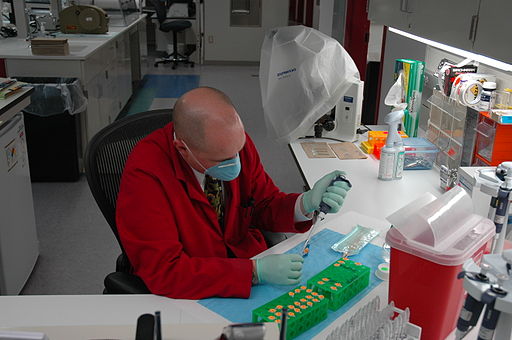Conflicting Views on a Wider Police Use of DNA
By Eli Rosenberg,
The New York Times
| 02. 10. 2017
The question of how widely investigators should be able to examine DNA databases is in the news, as officials in New York deliberate whether to authorize a method that could help find relatives of people charged with crimes.
Called familial searching, the technique attracted support after the murder of Karina Vetrano in Queens, a case that stymied investigators for months. Though a recent break in the case that led to the arrest of a suspect did not involve familial searching, the push for New York to join at least nine other states in authorizing the method has continued.
Familial searching allows investigators to look through databases with wider parameters to identify people who are most likely close relatives of the person who may have committed a crime. After a relative is found, investigators work backward to find the suspect. Many officials say familial searching is an important tool for solving particularly stubborn cases. It has led to arrests in cases like the so-called Grim Sleeper in Los Angeles. Ms. Vetrano’s parents, too, have advocated its use.
But the method...
Related Articles
By Arthur Lazarus, MedPage Today | 01.23.2026
A growing body of contemporary research and reporting exposes how old ideas can find new life when repurposed within modern systems of medicine, technology, and public policy. Over the last decade, several trends have converged:
- The rise of polygenic scoring...
By Stephanie Pappas, LiveScience | 01.15.2026
Genetic variants believed to cause blindness in nearly everyone who carries them actually lead to vision loss less than 30% of the time, new research finds.
The study challenges the concept of Mendelian diseases, or diseases and disorders attributed to...
By David Cox, Wired | 01.05.2026
As he addressed an audience of virologists from China, Australia, and Singapore at October’s Pandemic Research Alliance Symposium, Wei Zhao introduced an eye-catching idea.
The gene-editing technology Crispr is best known for delivering groundbreaking new therapies for rare diseases, tweaking...
By Josie Ensor, The Times | 12.09.2025
A fertility start-up that promises to screen embryos to give would-be parents their “best baby” has come under fire for a “misuse of science”.
Nucleus Genomics describes its mission as “IVF for genetic optimisation”, offering advanced embryo testing that allows...




